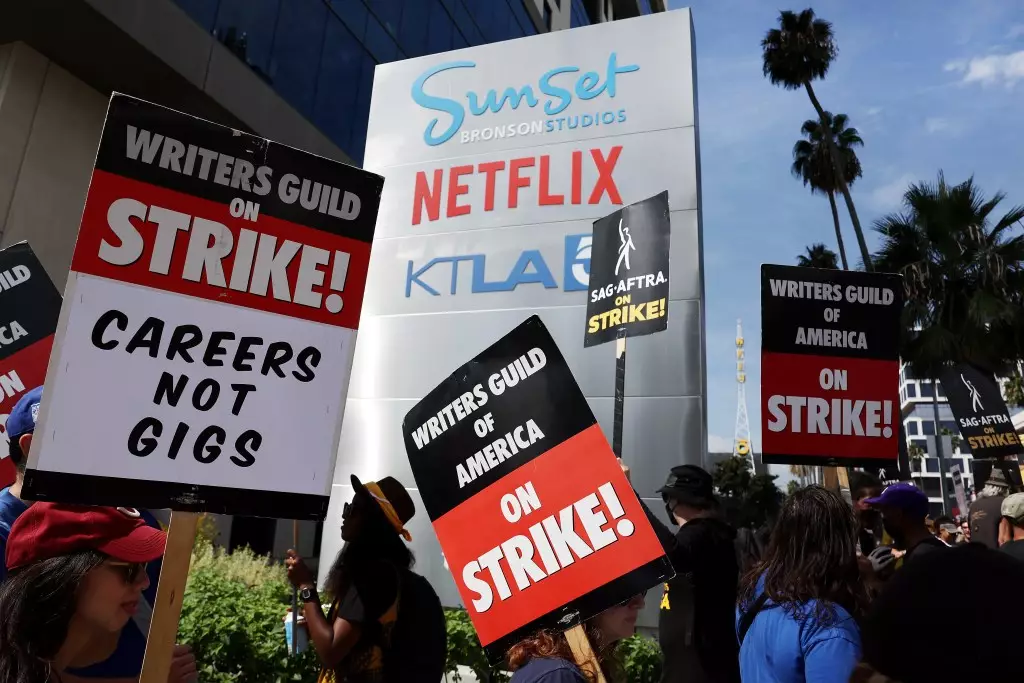The landscape of television writing is undergoing a seismic shift, presenting a stark and troubling picture for those within the industry. The Writers Guild of America (WGA) recently disclosed a staggering 42% drop in available television writing positions for the 2023/24 season, a statistic that serves as a dire wake-up call. This abrupt decrease translates to merely 1,819 jobs, a notable drop from the previous season’s 1,319 openings. These figures not only highlight the precarious state of television employment but also reflect deeper underlying issues rooted in the industry itself.
The WGA’s Struggles and Industry Pressures
The backdrop of these alarming statistics is marked by the WGA’s intense negotiations with major studios over fair working conditions and salaries. The protracted strike that unfolded from May 2 to September 27, 2023—spanning 148 days—underscores the desperation of writers clashing with company interests. This struggle was not isolated, existing simultaneously with another significant labor action—the SAG-AFTRA strike—hinting at broader systemic issues affecting the entertainment sector as a whole. The presence of financial pressure from Wall Street, demanding quicker profits from streaming platforms, complicates the situation further, resulting in reduced investment in original programming.
Disheartening Trends in Programming
As the industry increasingly prioritizes immediate profitability, the repercussions for creative endeavors are profound. The decline in original shows on both cable networks and streaming services translates to fewer opportunities for writers, especially for showrunners and co-executive producers. The statistics are stark: there are 642 fewer roles at the top levels of programming compared to the previous year, revealing a troubling trend towards minimizing the creative leader roles in favor of financial expediency. The ripple effect is felt throughout the writing community, including a significant drop in mid-level positions—299 jobs removed altogether.
A Call for Reflection and Action
The decline in television writing jobs not only represents a personal crisis for many but also stifles the creativity that fuels diverse storytelling in television. With a total of 10,000 members, the WGA is more than a union; it embodies the collective voice of the creators shaping our narratives. The situation demands urgent reflection and action, raising questions about how the industry can sustain itself while fostering creative talent. Are writers merely cogs in the entertainment machine, reducible and dispensable, or are they the lifeblood of storytelling that captivates audiences?
The current atmosphere calls for a reevaluation of values within the industry, fostering an environment where creativity can flourish rather than suffocating under financial constraints. Only by prioritizing artistic vision alongside profitability can the television industry hope to emerge from this crisis and reclaim its position as a leader in innovative storytelling.


Leave a Reply